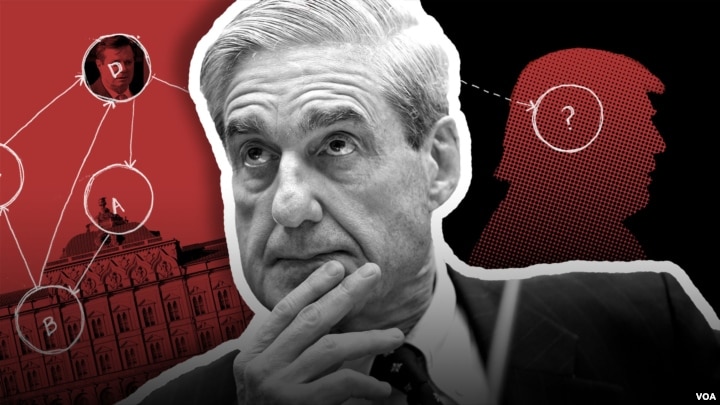Democratic and Republican lawmakers had sharply differing reactions to Thursday's release of special counsel Robert Mueller's redacted Russia report and what steps, if any, Congress should take next.
Investigators determined no one on Trump's campaign knowingly conspired with Russians in Moscow's 2016 election interference, however they declined to exonerate the president on charges that his actions obstructed justice.
In a statement, Oklahoma Republican Sen. James Inhofe described Mueller's report as "a lot of nothing: no collusion, no obstruction" and accused Democrats of "an effort to smear the president."
Democrats, meanwhile, pledged to continue examining Trump's actions.
"The special counsel made clear that he did not exonerate the president, and the responsibility now falls to Congress to hold the president accountable for his actions," the chairman of the House Judiciary Committee, Democratic Rep. Jerry Nadler of New York, said at a news conference. "Congress must get the full unredacted report, along with the underlying evidence uncovered by special counsel Mueller."
Democrats highlighted portions of the Mueller report documenting contacts between Trump's inner circle and foreign operatives bent on damaging the president's 2016 Democratic opponent, Hillary Clinton, by hacking and releasing sensitive emails from her campaign.
They also noted the report's documentation of instances where Trump sought to thwart the Russia probe.
"Mueller shows collusion, but perhaps not criminal collusion," California Democratic Rep. Brad Sherman tweeted. "Collusion in dissemination [of emails], but not in the hacking. And Mueller show lots of criminal obstruction."
Democratic Senator Bob Casey of Pennsylvania tweeted that a thorough examination of the Mueller report "will not change what we already know: Russia attacked our election in 2016, [and] President Trump and his closest aides and allies welcomed that attack."
"This report is far from the end of the inquiry that this country needs and deserves," Democratic Sen. Richard Blumenthal of Connecticut said.
Republicans, meanwhile, focused on the special counsel's bottom line: no recommendation of charges against Trump.
"Nothing we saw today changes the underlying results of the 22-month-long Mueller investigation that ultimately found no collusion," House Republican Leader Kevin McCarthy said in a statement. "Democrats want to keep searching for imaginary evidence that supports their claims, but it is simply not there."
That view was echoed by the top Republican on the House Judiciary Committee.
"The special counsel's 22-month investigation found no Americans conspired with Russia to interfere in our elections and Democrats' accusations of criminal obstruction are unfounded," Georgia Rep. Doug Collins said in a statement.
Earlier in the day, Nadler released a letter requesting that Mueller testify before the panel "as soon as possible." At a news conference, Attorney General William Barr indicated he had no objection to Mueller appearing before Congress, a stance some Republicans applauded.
"If Mr. Mueller were to testify, it could give Congress and the American people another opportunity to better understand the facts and conclusions he reached during his investigation," Maine Republican Sen. Susan Collins said in a statement.
Some lawmakers urged the American people to weigh in, as well.
"I'm reading it [the Mueller report]. More importantly, the American people should read the report for themselves and draw their own conclusions," Maryland Democratic Senator Ben Cardin tweeted.
Cardin noted that the report contains alarming information about Russian efforts to undermine American democracy.
"We have an obligation to protect our country from Russia and others who would want to do us harm, including trying to twist our system for their own purposes," he said.
Inhofe echoed the concern.
"[T]he Mueller report did remind us of Russia's clear and persistent efforts to disrupt our democratic process," the Republican senator said, accusing Moscow of a continuing "effort to sow discord and distrust" within the American electorate.






